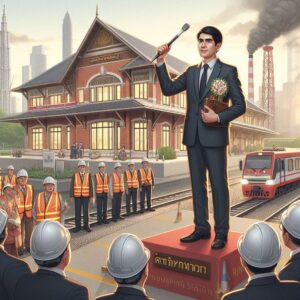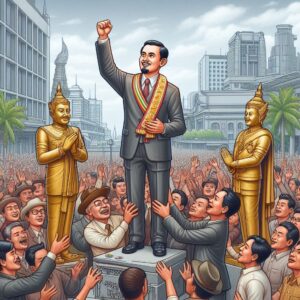故郷へ錦を飾るとは?
「故郷へ錦を飾る(こきょうへにしきをかざる)」とは、成功や立身出世を果たし、華やかな姿で故郷に帰ることを意味することわざです。かつて貧しかったり無名だった人物が、努力を重ねて名誉や地位を得た後、晴れやかな姿で生まれ故郷に帰ることを指します。
語源と由来
このことわざの「錦」とは、美しい織物である「錦織(にしきおり)」のことを指し、古くから高貴な人々が身につける華やかな衣装を象徴していました。
この表現は、中国の故事「衣錦還郷(いきんかんきょう)」に由来しています。これは、中国の歴史書『晋書』に記された言葉で、成功した人物が美しい衣服をまとって故郷へ帰る様子を意味します。
日本でもこの故事が広まり、出世や成功を果たしてから故郷に凱旋することを「故郷へ錦を飾る」と表現するようになりました。
使われ方と例文
このことわざは、特に以下のような状況で使われます。
出世して故郷に帰る
例:「彼は海外でビジネスを成功させ、ついに故郷へ錦を飾ることができた。」
スポーツ選手や芸能人が成功して地元に凱旋する
例:「地元出身の選手がオリンピックで金メダルを獲得し、故郷へ錦を飾った。」
苦労の末に夢を叶えた人が故郷へ戻る
例:「若い頃は苦労したが、ようやく一流の画家となり、故郷へ錦を飾ることができた。」
現代における意味の広がり
現代では、必ずしも「地位や名誉を得る」ことだけを指すわけではなく、「何かしらの成功を収めて故郷に帰る」こと全般を指すようになっています。例えば、地元に貢献するために起業したり、教育やボランティア活動で地域を盛り上げたりすることも、広い意味で「故郷へ錦を飾る」と言えるでしょう。
「故郷へ錦を飾る」は、成功を収めて華やかに故郷へ帰ることを意味することわざです。語源は中国の故事「衣錦還郷」に由来し、特に出世や偉業を成し遂げた人が生まれ故郷に戻る際に使われます。現代では、社会的成功だけでなく、故郷に貢献する行為などにも使われることがあり、幅広い意味を持つようになっています。
Kokyo e nishiki wo kazaru” (to return to one’s hometown with a glamorous appearance) is a proverb meaning to return to one’s hometown with a glamorous appearance after achieving success or success in life. It refers to a person who was once poor or unknown, but who returns to his/her birthplace in a glamorous appearance after having worked hard and achieved honor and status.
Etymology and Origin
The word “nishiki” in this proverb refers to “nishikiori,” a beautiful fabric that has long symbolized the gorgeous garments worn by noble people.This expression is derived from the Chinese legend “衣錦還郷” (衣錦還郷). This phrase is found in the Chinese history book “The Book of Jin,” and refers to a successful person returning to his or her hometown wearing beautiful clothes.
In Japan, this legend spread, and the phrase “returning to one’s hometown in triumph after a successful career” came to be used to describe a person’s triumphant return to his or her hometown.
Usage and Examples
This proverb is used especially in the following situationsa person returns to his/her hometown after achieving success in his/her career
e.g., “He has succeeded in business abroad and is finally able to brocade his hometown.”An athlete or celebrity makes a triumphant return to his/her hometown after a successful career.
Example: “A local athlete won a gold medal at the Olympics and returned to his hometown in triumph.”A person who returns to his/her hometown after realizing his/her dream through hardship
e.g. “I struggled a lot when I was young, but I finally became a first-class painter and was able to return to my hometown.”Expanding Meanings in Modern Times
In modern times, it does not necessarily refer only to “gaining status or honor,” but has come to mean “returning to one’s hometown after achieving some kind of success” in general. For example, starting a business to contribute to one’s hometown, or enlivening one’s community through educational or volunteer activities can also be considered “returning to one’s hometown” in a broad sense.The phrase “to return to one’s hometown in style” is a Chinese proverb meaning to return to one’s hometown in style after achieving success. It originates from a Chinese legend, “return to one’s hometown in brocade,” and is especially used when a person who has achieved success or greatness returns to his or her birthplace. In modern times, it has come to have a wide range of meanings, being used not only for social success, but also for acts of contribution to one’s hometown.
AIが描いた「故郷へ錦を飾る」






コメント